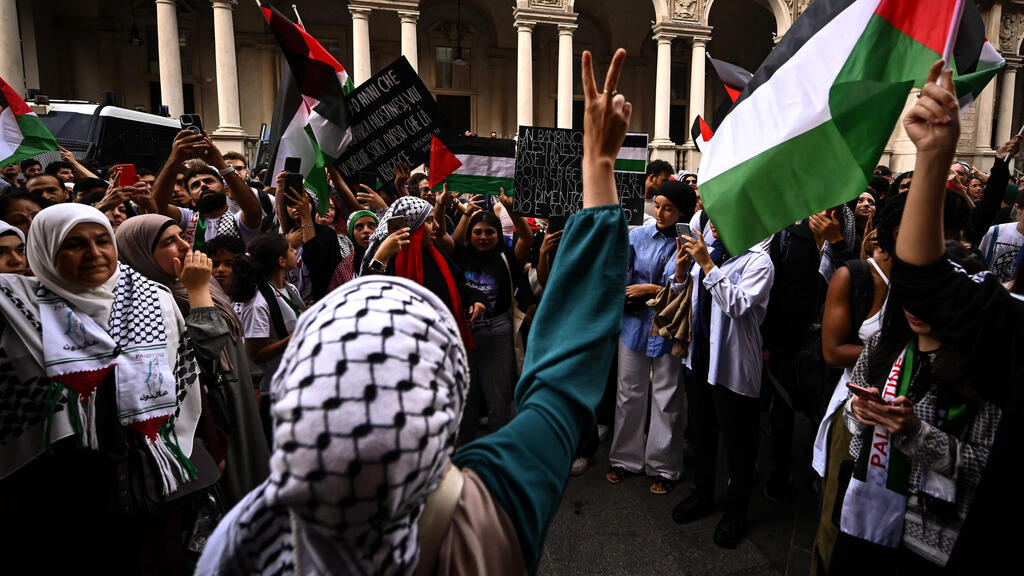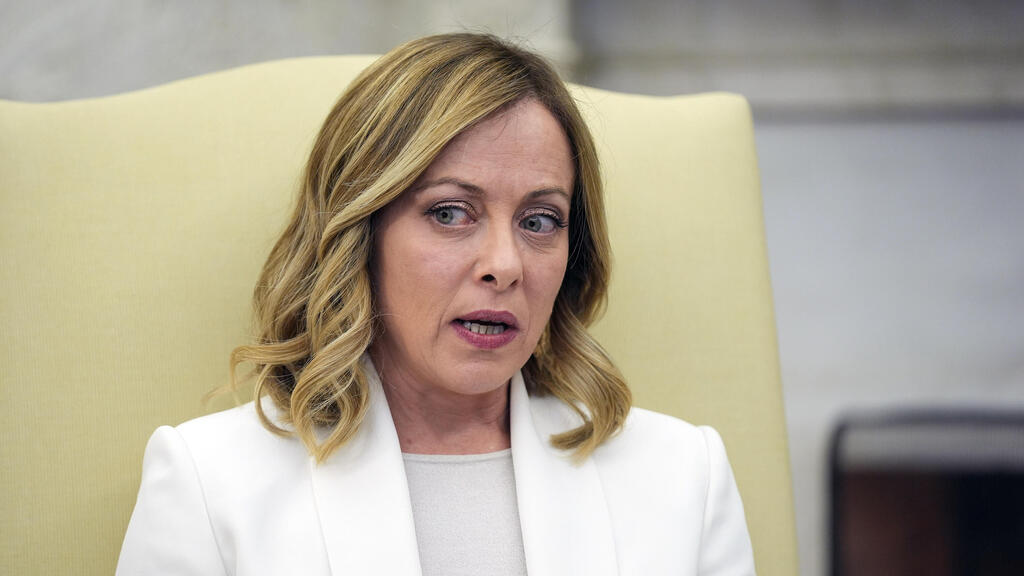Getting your Trinity Audio player ready...
A major controversy erupted in Italy after the country’s “New Communist Party” published a list of Jews, Israelis, and Italian citizens—including politicians, journalists, intellectuals, and business figures—labeling them as “Zionist agents in the country who must be condemned and fought against” due to their alleged support and cooperation with Israel.
Although this radical left-wing party is considered marginal in Italy's political landscape, the incident has sparked widespread reactions and extensive coverage in the Italian media.
The list, titled “Zionist Organizations and Agents in Italy,” contains over 150 names, categorized into various sections. The first section lists companies and individuals from the financial sector. The second category includes corporations and figures from the industry and commerce sectors, featuring companies like ICL, Ahava, Electra, and SodaStream. Another group highlights names from the real estate and investment sectors, while a further category names Israeli companies in the technology and military fields, such as Elbit. The list then takes a more personal and controversial turn.
In a section labeled “Zionists in political parties or representatives of public organizations active in supporting the Zionist state of Israel,” the list includes prominent figures such as former journalist and current politician Ester Mieli, former Italian Ambassador to Israel Luigi Mattiolo, and former President of the Jewish Community of Rome Riccardo Pacifici, among others.
The seventh category targets what the party calls “Zionists in the media and cultural spheres who support or promote the Zionist state in Italy,” featuring a long list of well-known public figures. These include numerous journalists like Maurizio Molinari, who has faced repeated attacks in recent months for being Jewish and pro-Israel, and Emanuela Dviri, an Israeli-Italian journalist and mother of Yoni Dviri, an Israeli soldier who was killed in Lebanon, which led her to join the “Four Mothers” movement. The list also names the President of Italy’s Jewish community, Noemi Di Segni, along with the Chief Rabbi of the Jewish Community of Rome, Riccardo Di Segni, and a number of other Jewish rabbis and journalists.
The New Communist Party of Italy defended the list, claiming it was created in response to what they described as a “smear campaign” against Chef Rubio, a prominent figure who has made headlines since October 7 for his harshly anti-Semitic and anti-Israel remarks. Known for his extreme views against Israel and his support for Palestinians, Chef Rubio—whose real name is Gabriele Rubini—was recently ordered by an Italian court to remove inflammatory posts against Jews and Israel from his social media and to pay a substantial fine for any post not deleted.
The publication of the blacklist has been met with near-universal condemnation across the Italian political spectrum and in the local media. The ruling party, the right-wing nationalist “Brothers of Italy,” called on left-wing parties to unequivocally denounce the act. The center-left Democratic Party demanded a parliamentary inquiry.
“In recent hours, an anti-Semitic organization calling itself the New Communist Party has circulated a blacklist targeting individuals, organizations, and companies that it claims should be targeted and boycotted due to their ties to Israel and the Jewish world. This is yet another in a long line of anti-Semitic actions that harken back to a very dark period in Europe’s history. We extend our support and solidarity to all those involved,” stated several Democratic Party parliamentarians.
Minister of Culture Gennaro Sangiuliano expressed his solidarity with the Jewish community and those named in the list. “There is no place in our society for any act of intolerance or harm to freedom of expression and thought,” he said. Italian Senate President Ignazio La Russa, a right-wing nationalist, added, “It is deeply troubling that the Communist Party has published on its website a list of politicians, journalists, and businesspeople ‘guilty’ of supporting Israel. This is a serious and unacceptable act, a violation of freedom of thought, and a worrying threat to the personal security of those named.”
The Jewish community in Rome also condemned the list in the strongest terms, stating, “This blacklist is yet another alarming sign of the resurgence of anti-Semitism, which is increasingly raising its head and voice, and the level of its threat.”
Like other European countries, Italy has experienced a sharp rise in anti-Semitic incidents since October 7, including rampant incitement on social media and numerous violent protests, particularly from radical left-wing movements and student organizations that have acted violently on campuses across the country. Among the incidents were attacks on Jewish journalists, vandalism at fairs showcasing Israeli goods, and even at a prominent book fair, alongside violent acts also perpetrated by the extreme right.




